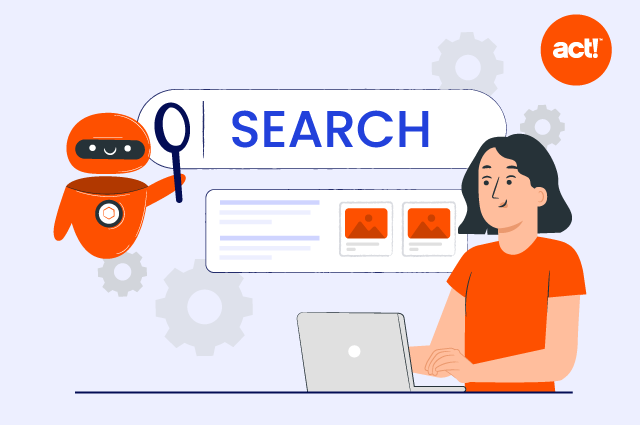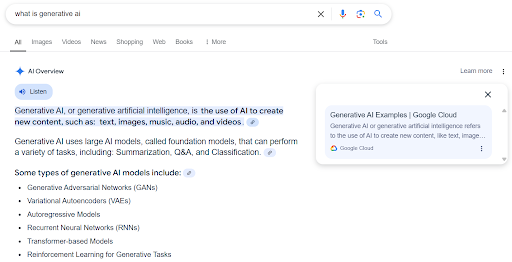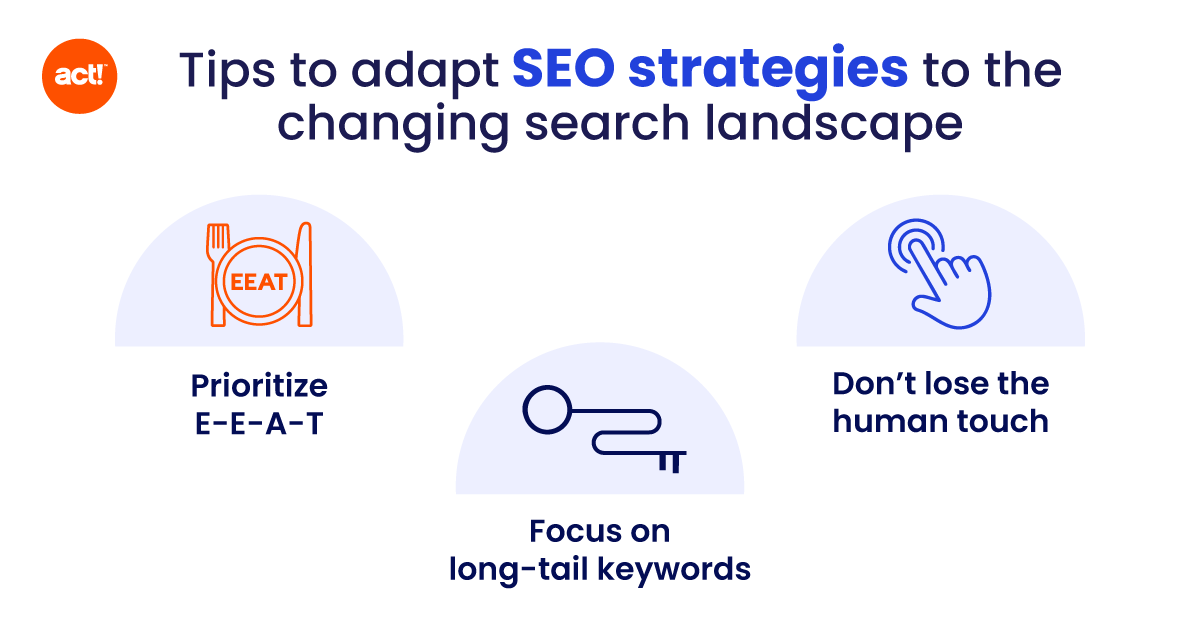
Is AI the future of search engine optimisation? This has been a topic of hot debate among marketers and business owners alike.
OpenAI released ChatGPT in November 2022, and SEO has never been the same again. The generative AI-driven chatbot attracted 100 million monthly active users within two months of its release and became the fastest-growing consumer application.
Just two years later, ChatGPT boasts 200 million monthly active users—a testament to the prevalence of artificial intelligence. Tech powerhouses, including Google and Microsoft, have launched their AI-powered tools to tap into the growing popularity of genAI.
But how has artificial intelligence affected search engine algorithms? More importantly, how can small businesses adapt their SEO strategies to keep up with these changes? Will AI tools like ChatGPT and Google Gemini permanently alter consumers’ search preferences and make SEO obsolete?
Let’s explore the answers to these questions and more.
AI and SEO: A look back
First things first—AI technologies and search engines aren’t new to each other. Google has been using machine learning (ML) models to optimise search engine algorithms for years.
For instance, in 2015, Google introduced RankBrain to better understand search queries and improve the quality of search results. RankBrain uses ML to understand what users want and helps Google deliver more meaningful search results, even for queries it hasn’t encountered before.
Then there was BERT in 2019, which uses natural language processing (NLP) to help Google’s search algorithm understand the nuances of human language. With it, Google can understand the context of words and their relationship to each other in a search query. That, in turn, helps make search engine results pages (SERPs) more relevant to a user’s needs.
More recently, Google released MUM (Multitask Unified Model) in 2021 as a significant improvement over BERT.
AI chatbots, SGE, and the future of search
The concept of using AI to enhance the user experience of searches isn’t new. However, the launch of ChatGPT triggered a shift in the fundamental way people search. The generative AI platform provides users with detailed answers to their queries, eliminating the need to scroll through SERPs and visit multiple websites.
The launch of ChatGPT Search
Today, ChatGPT also has a “Search the web” feature, which allows users to ask the chatbot to scour the internet for relevant links. The answer includes a summary of the information and relevant citations. It also helps users get information about recent events. That’s a massive improvement over GPT-4, which is trained on a dataset of up to 2023. Similar features exist on Google’s Gemini and Meta AI.
As of this writing, OpenAI has rolled out ChatGPT Search to all users, regardless of whether they have a paid subscription.
That raises the question—can generative AI tools impact Google’s dominance in the digital landscape? For instance, Gartner predicts a 25 percent decline in traditional search engine volume by 2026.
Google’s genAI endeavors
Google has been taking active measures to compete with ChatGPT and other AI chatbots. Besides launching its conversational AI model (Gemini), the search engine giant has also integrated AI capabilities into SERPs.
With SGE (Search Generative Experience), Google aims to add ChatGPT-like features to traditional search engine results. It curates structured, to-the-point answers to search queries and displays them at the top of SERPs in a snippet. Each paragraph/point in the answer is also annotated with links to the source of the information. That, in turn, helps users check for inaccuracies and learn more about the topic.

Where is search headed?
Given the recent developments, will ChatGPT and SGE replace traditional search? Not exactly.
AI tools are notorious for hallucinating information, resulting in inaccurate, misleading, and often biased answers. In other words, users still have to visit relevant web pages to verify the information generated by these tools.
Also, models like GPT-4 are trained on pre-existing datasets. Even the most advanced AI models depend on well-researched and optimised content to respond to users’ queries. Plus, these tools don’t have access to real-time data, meaning they can’t be a complete replacement for traditional search results.
It isn’t surprising, then, that Google still receives 3.5 billion search queries daily.
How to adapt SEO strategies to the changing search landscape

Generative AI-powered models won’t replace good-old SERPs anytime soon. However, these tools are shaping new user expectations. Small businesses must integrate AI and SEO strategies to boost their rankings and online presence.
Here are a few tips to help you get started:
Prioritise E-E-A-T
E-E-A-T stands for:
- Experience
- Expertise
- Authoritativeness
- Trustworthiness
Think of E-E-A-T as Google’s guidelines for creating content that delivers value to users. Include insights from personal experience and authoritative sources. Add an author bio to demonstrate expertise. Get technical aspects like SSL certification right to ensure visitors can trust your website.
Complying with E-E-A-T principles helps create engaging and meaningful content that addresses user needs. Besides improving search rankings, it can also increase the chances of being featured in generative AI responses at the top of the SERPs to gain organic traffic.
Focus on long-tail keywords
Long-tail keywords cater to specific search queries and are more contextually relevant to user intent. Also, they are often associated with conversational queries (like the ones people use in AI tools and voice searches). Optimising your content for these keywords increases the likelihood of getting featured in AI-generated responses.
Don’t lose the human touch
AI SEO tools like Jasper and Copy.ai can help with content creation at scale. However, remember that both search engines and AI models want to deliver the best user experience. So, relying on cookie-cutter AI-generated content won’t promote all of your SEO efforts or necessarily get you very far in SERPs. Worse, it can get your website penalised and deindexed if the content appears to be plagiarised.
A clever approach is to research your topic and create an outline on your own. Then, use an AI tool to generate the initial draft. Next, include recent data, examples, and your own insights and opinions to make the content stand out. Likewise, you can use AI tools to create outlines and write content on your own.
Prepare for the future of search with an AI-ready SEO strategy
AI is no longer the future of SEO. It is the present. While generative AI models are changing search habits and preferences, they likely won’t replace Google and other search engines. The key is to work on the SEO strategies of your small business to keep up with AI-powered searches.






